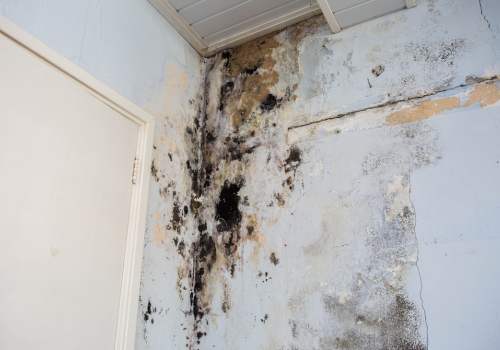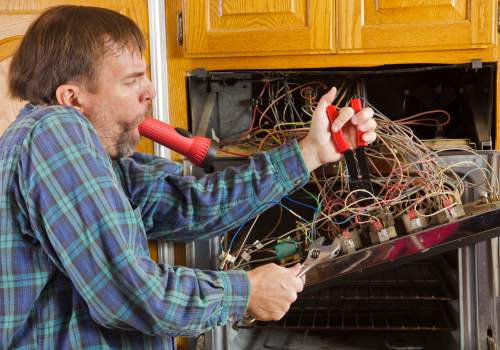11 Legit Reasons to Withhold Rent and Not Get Burned
When your living situation becomes less than ideal, you might find yourself considering the serious step of withholding rent.
While it’s never an easy decision to pause your monthly payments, there are legitimate reasons that justify this action – and specific ways to protect yourself when you do.
You’ll need to understand both your rights as a tenant and your legal obligations before taking this step, as the consequences of withholding rent incorrectly can be severe.
Let’s explore the valid reasons that could warrant this measure and the essential steps you’ll need to take to safeguard your interests.

Essential Utilities Not Working
Essential home utilities form a fundamental requirement of any rental agreement.
When your landlord fails to maintain working water, electricity, heat, or gas, you’ve got legal grounds to withhold rent.
Your right to basic utilities isn’t just a convenience – it’s protected by law in most states.
Before you stop paying rent, document every utility failure and your attempts to notify your landlord.
Take photos, save text messages, and keep copies of written complaints.
You’ll need to prove the issue persists despite your reasonable requests for repairs.
Most states require you to place withheld rent in an escrow account to show good faith.
Don’t act hastily – utility failures must be substantial and ongoing, not just a brief outage.
Check your local tenant rights laws, as specific requirements vary by jurisdiction.
Severe Health Code Violations

A rental property must meet basic health and safety standards to be legally habitable.
When your landlord fails to address serious health code violations, you’ve got legal grounds to withhold rent.
Common violations include toxic mold growth, pest infestations, sewage backups, and exposure to hazardous materials like asbestos or lead paint.
Before you stop paying rent, document all violations thoroughly with photos and written reports.
Contact your local health department for an official inspection.
They’ll cite specific code violations and give your landlord a deadline to fix them.
Send your landlord a formal notice detailing the violations and your intent to withhold rent if they’re not resolved.
Keep all rent money in a separate escrow account to prove you’re acting in good faith, not simply avoiding payment.
Structural Safety Hazards
Serious structural defects in a rental property can pose immediate dangers to tenants’ safety and justify rent withholding.
You should watch for sagging floors, cracked foundation walls, unstable staircases, or compromised load-bearing walls that could lead to catastrophic failure.
Document these issues thoroughly with photos and written descriptions.
If you spot structural problems, notify your landlord immediately in writing. Your state’s laws likely require landlords to maintain the building’s structural integrity.
You’ll need to give them reasonable time to address the issues, but don’t wait indefinitely if they’re unresponsive.
When facing genuine structural hazards, you have the right to withhold rent and possibly relocate for your safety.
Just make sure you’ve documented everything and consulted local housing codes before taking action.
Toxic Mold Infestation

Beyond structural issues, toxic mold infestations represent another legitimate reason to withhold rent from your landlord.
When you discover black mold or other hazardous fungal growth in your rental unit, you’re facing a serious health risk that requires immediate attention.
These toxins can trigger respiratory problems, allergic reactions, and neurological symptoms.
You’ll need to document the mold problem thoroughly with photos and notify your landlord in writing.
If they don’t address the issue within a reasonable timeframe, usually 14-30 days depending on your state, you can legally withhold rent.
Make sure to get an independent assessment from a certified mold inspector and keep all test results, medical records, and correspondence.
Store your withheld rent in a separate escrow account to prove you’re acting in good faith while protecting your rights as a tenant.
No Heat During Winter
Living without heat during winter months represents one of the most clear-cut justifications for withholding rent.
Most state laws require landlords to maintain habitable temperatures, typically above 68°F during the day and 62°F at night.
If your heating system fails and your landlord won’t fix it promptly, you’re legally entitled to take action.
Before withholding rent, document everything.
Take photos of thermometer readings, keep a detailed log of temperatures, and save copies of all communications with your landlord.
You’ll need to send a formal notice describing the problem and giving them reasonable time to fix it.
If they don’t respond, you can withhold rent, but you must place the money in an escrow account to show good faith.
Don’t spend these funds – they’re your protection against eviction proceedings.
Major Appliance Breakdown

Essential appliances that stop working can justify rent withholding, particularly when they affect basic living conditions.
You’ll need to determine if the broken appliance is considered “essential” under your state’s laws.
Generally, refrigerators, ovens, and water heaters qualify, while dishwashers and microwaves don’t.
Before withholding rent, document the breakdown with photos and written complaints.
Notify your landlord in writing about the issue and give them reasonable time to fix it – usually 14-30 days, depending on your location.
Keep copies of all communications. If they fail to respond, check your local tenant rights office to confirm you’re following proper procedures.
Consider placing your rent in an escrow account to show good faith and protect yourself legally. Don’t spend the withheld rent, as you may need to pay it later.
Pest Control Problems
Severe pest infestations can provide legitimate grounds for withholding rent, particularly when they pose health risks or make living conditions unbearable.
You’ll need to document the presence of roaches, rats, bed bugs, or other vermin through photos, videos, and pest control assessments.
Before withholding rent, notify your landlord in writing about the infestation and give them reasonable time to address the problem.
Most states require landlords to maintain pest-free properties, but you must follow proper legal procedures when withholding payment.
Keep detailed records of all communication and expenses related to pest control.
If your landlord fails to respond, you might consider placing your rent in an escrow account while pursuing legal remedies.
Breach of Quiet Enjoyment

Persistent disturbances and interference with your right to peaceful occupancy constitute a breach of quiet enjoyment – a fundamental protection guaranteed in most lease agreements.
You’re entitled to withhold rent if your landlord repeatedly fails to address serious disruptions like excessive construction noise, unauthorized entries, or harassment from management.
Before taking action, document every incident with dates, times, and evidence.
Send written complaints to your landlord, clearly stating how these disturbances violate your lease terms. Keep copies of all correspondence.
If they don’t resolve the issues within a reasonable timeframe, consider placing your rent in an escrow account while pursuing legal remedies.
Don’t withhold rent without proper documentation and legal guidance – you’ll need proof that the disturbances considerably impacted your ability to use and enjoy the property.
Illegal Entry by Landlord
A landlord’s unauthorized entry into your rental unit represents a serious violation of your privacy rights and typically justifies withholding rent.
Most states require landlords to provide advance notice (usually 24-48 hours) before entering your unit, except in genuine emergencies like fire or flooding.
If your landlord repeatedly enters without proper notice or permission, you’ll need to document each incident.
Keep a detailed log of dates, times, and circumstances.
Take photos or video evidence when possible, and send written complaints via certified mail.
You should also check your state’s specific laws about self-help remedies, including rent withholding.
Before withholding rent, notify your landlord in writing that their illegal entries violate your lease and state law.
If the behavior continues, you’ve got solid grounds to withhold rent or terminate your lease early.
Uninhabitable Living Conditions

While illegal entry violates your privacy rights, uninhabitable conditions threaten your basic health and safety.
Your landlord must maintain a habitable dwelling that meets local health and safety codes.
You’re legally entitled to working plumbing, heat, electricity, and a structure free from pest infestations or dangerous defects.
If you’re facing severe habitability issues like black mold, broken heating in winter, or major water leaks, you can withhold rent – but you must follow specific procedures.
Document everything with photos, send written notices to your landlord, and give them reasonable time to fix the problems.
Keep all withheld rent in a separate escrow account to prove you’re acting in good faith.
Don’t stop paying rent without first consulting tenant laws or seeking legal advice, as improper withholding can lead to eviction.
Security System Malfunction
Security system failures in rental properties can provide legitimate grounds for withholding rent, especially when these malfunctions compromise your safety.
When security cameras stop working, door locks fail, or alarm systems become unreliable, you’re exposed to potential criminal activity and unauthorized entry.
Before withholding rent, document every malfunction thoroughly.
Take photos, record dates of incidents, and maintain copies of all communications with your landlord about the security issues.
You’ll need to formally notify your landlord in writing about the problems and give them reasonable time to fix the situation.
If they don’t respond, check your local tenant laws regarding security requirements and rent withholding procedures.
Consider placing your rent in an escrow account to prove you’re acting in good faith while protecting your legal rights.
FAQs
Can I Withhold Rent if I’m Planning to Move Out Soon?
Like playing with fire, you shouldn’t withhold rent just because you’re moving out. It’s illegal, and you’ll face serious consequences – damaged credit, lawsuits, and future rental difficulties. Only withhold rent for legally valid reasons.
What Documentation Should I Keep When Withholding Rent Payments?
You’ll need detailed photos, written repair requests, inspector reports, and dated communications with your landlord. Keep all rent money in a separate escrow account and document every interaction about the property’s issues.
Does Rent Withholding Affect My Credit Score?
You’re walking a tightrope when withholding rent – it’ll likely damage your credit if your landlord reports missed payments. Even legitimate withholding can hurt your score unless you’ve documented everything and followed local laws.
How Long Can I Legally Withhold Rent Before Facing Eviction?
You’ll typically face eviction proceedings within 3-5 days after missing rent, depending on your state’s laws. Don’t withhold rent without proper legal grounds and documentation, or you’ll risk immediate eviction action.
Should I Notify My Renters’ Insurance Company When Withholding Rent?
Like a safety net, you’ll want to notify your renters’ insurance company when withholding rent. They need to know your situation in case your landlord retaliates or claims property damage during this period.
Final Thoughts
An ounce of prevention is worth a pound of cure when withholding rent from your landlord.
You’ll need proper documentation, written notices, and strict adherence to local tenant laws to protect yourself.
Don’t take this step lightly – always place withheld funds in an escrow account and maintain detailed records of all violations.
While you’ve got rights as a tenant, improper rent withholding can lead to eviction and legal troubles.